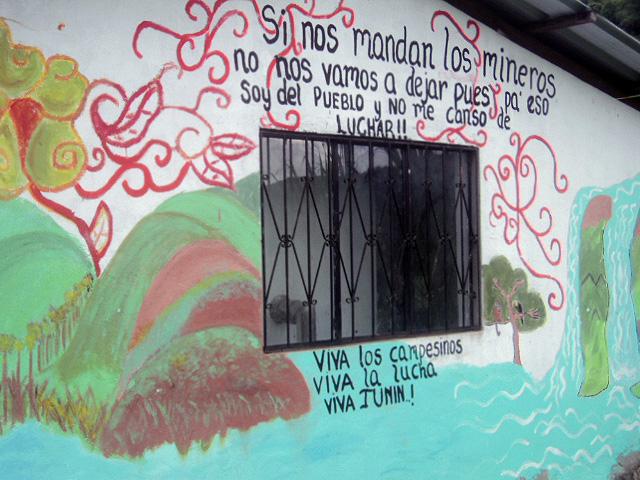From NACLA: Criminals or Citizens? Mining and Citizen Protest in Correa’s Ecuador

https://nacla.org/news/2015/11/02/criminals-or-citizens-mining-and-citizen-protest-correa%E2%80%99s-ecuador
Correísmo, President Rafael Correa’s particular brand of Latin American “post-neoliberal” populism, has developed a reputation for saying one thing, doing another, and criminalizing those who point out the difference. The criminalization of protest, together with state-led resource extraction, contradicts the socially minded programs of Ecuador’s 2008 Constitution. While Correa pushed for the creation of state industries to combat exploitation by multinational corporations, the development of state-owned economic enterprises is yielding a less egalitarian model than promised. Increasingly, these state industries act like foreign firms. Nowhere is this more apparent than in the way the state has marked protestors – or even those simply seeking transparency – as criminals.
According to a report by the Defensoría del Pueblo de Ecuador (2011), criminalization of protest takes two forms in Ecuador. On the one hand, the state has launched attacks against individuals. This overt criminalization has been well documented. For example, movement leaders like Javier Ramírez, who led his community of Junín against the opening of a copper mining project in the Llurimagua concession, have been incarcerated on dubious charges. President Correa has also become well known for calling environmentalists “infantile,” “romantics,” and even “terrorists.” These now emblematic cases of criminalization have been the subject of much national and international attention.
On the other hand, criminalization has become institutionalized – codified in state law and characterized by any perceived threat to the state. In 2009, for example, the state temporarily closed the well-known environmental organization, Accíon Ecológica, punishing the organization for critiques of the government and its role in anti-mining protests. Only later did state officials argue that the organization was working beyond the scope of its mission and charter. The Correa government has also argued that the organization did not register with the Ministry of Environment despite the fact the Ministry did not exist when Accíon Ecológica was founded.
Etiquetas: Ecuador, eng, Extractivism, NACLA

0 Comentarios:
Publicar un comentario
Suscribirse a Comentarios de la entrada [Atom]
<< Página Principal